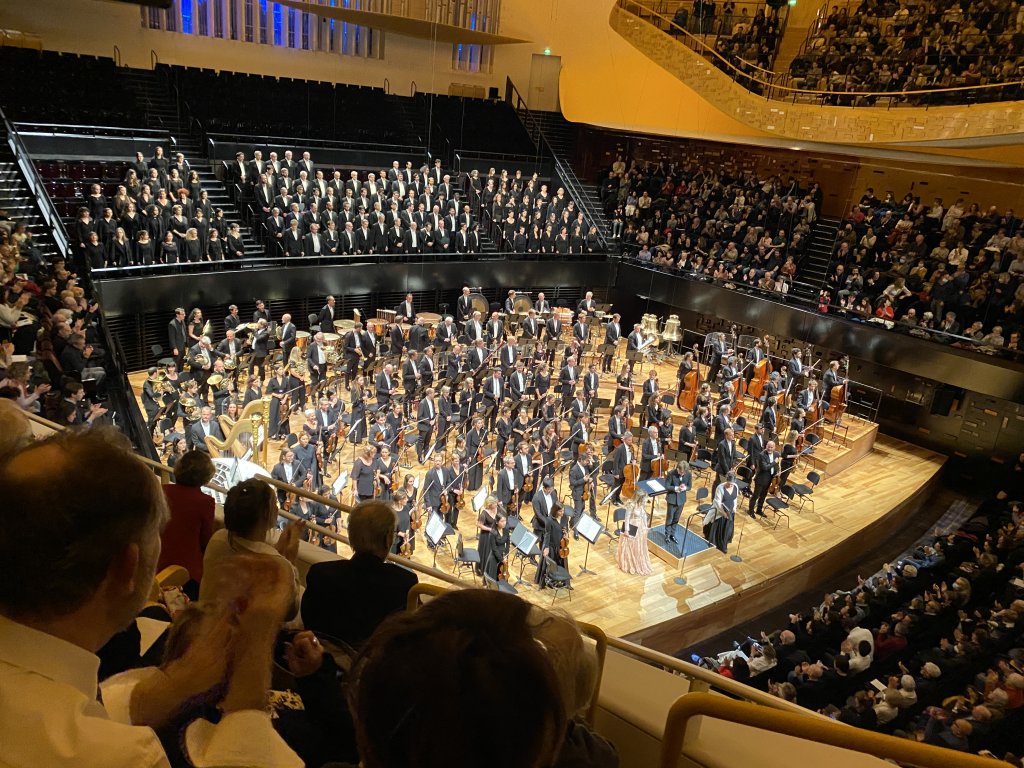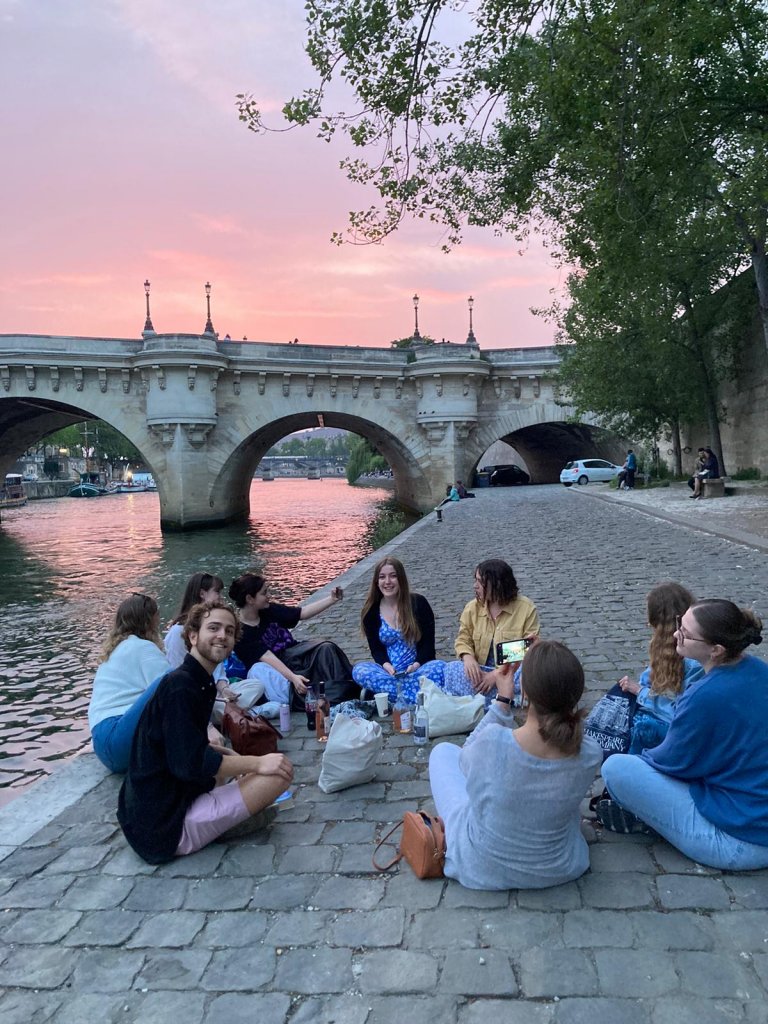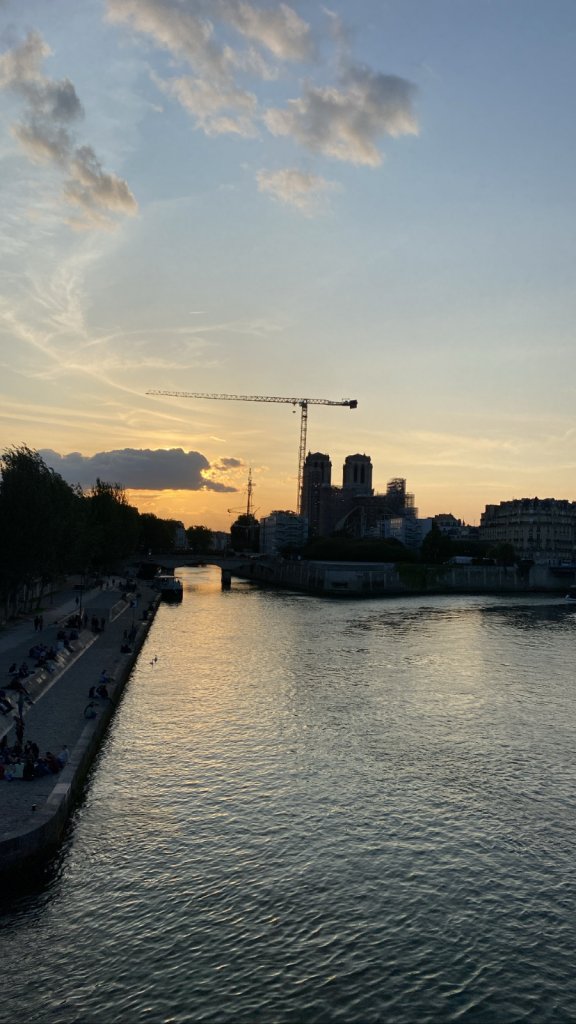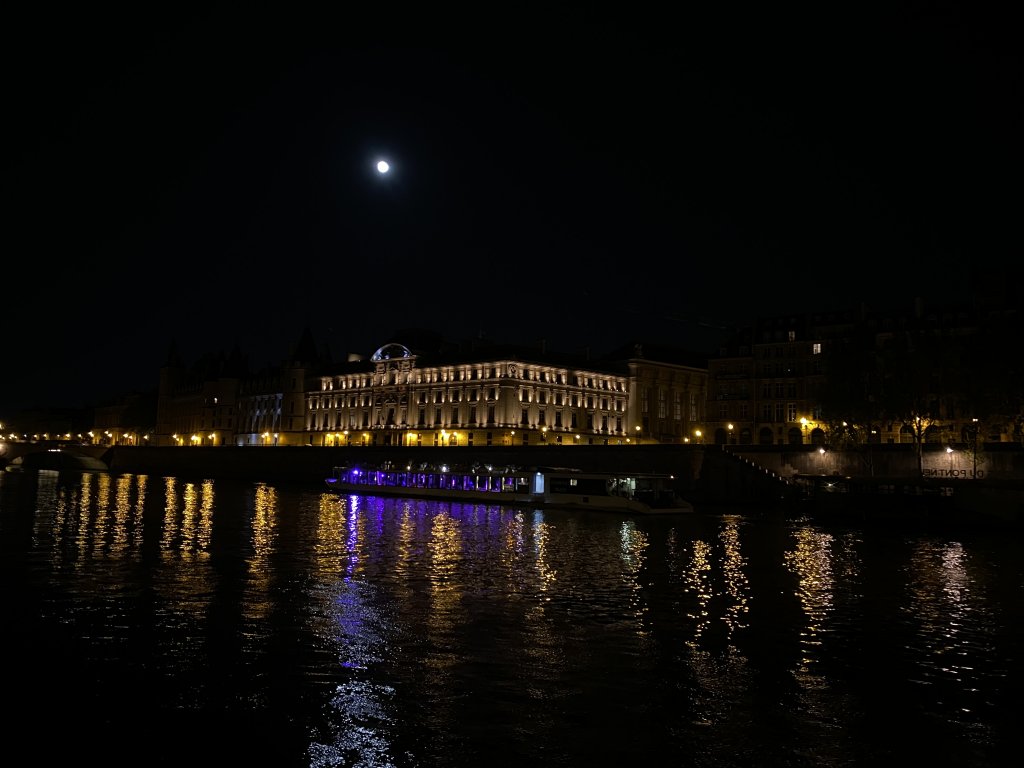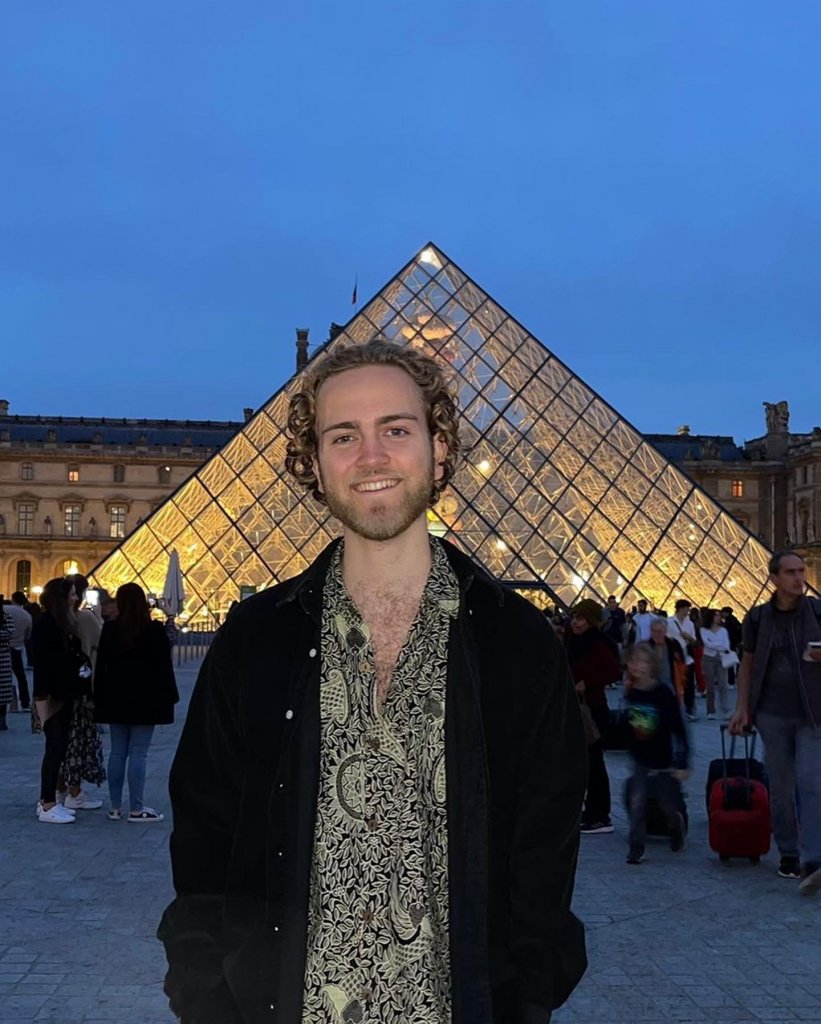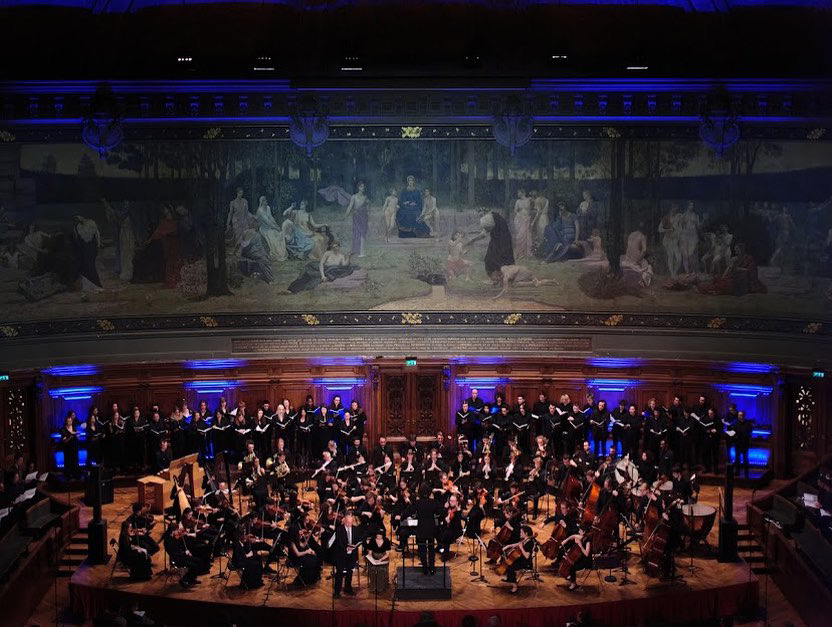This year I moved to another country, I lived alone for the first time, I started a new university, in another language, in a country where I knew no one. This has been a year of momentous change in my life and to try to reduce it into one piece of writing almost does it a disservice. In this blog post, I will therefore not try to give a day-to-day, or even month-to-month, account of my experiences in Paris. Instead, this will be a personal reflection on what I’ve learned over the last year, what I would do differently if I could turn back the clock and how I feel I have changed in the last nine months.
The University of Southampton will be glad to hear that I have had an academically rigorous year. In the first semester I took eleven modules and in the second semester I took sixteen, which totals to more than one takes in a Southampton degree. I decided to focus on the music that interests me, rather than cover too much ground in not enough detail. I focused on orchestral and operatic music from the 19th and early 20th Century. Most of my music education before this year has been focused on a holistic history of music, meaning I felt we never went into enough detail. In trying to achieve too much, too little was. I saw this year as the time to focus on what really interests me, to focus on depth rather than breadth and accept that I may miss some generalities about Renaissance chamber music. This was absolutely the right decision. I was at last able to spend more than one week on a subject, with lecturers devoting time to really examine a piece, an aesthetic or a composer. I have had such specific modules as “The German Symphony Orchestra in the Second half of the 19th Century” and a whole module dedicated to a single opera. Particularly the latter showed me the depths to which it is possible to go in the study of music and it has ignited an interest in a career in academia. I feel I have had a taste of what is possible, and I am not willing to give it up. The musical education I have received here has blown everything before it out of the water. I am grateful that I have received a good background in general music history, as it helps to put the specifics into context, but I feel I learned more in one semester than I did in 2 years at Southampton. This is not to criticise the teaching staff at Southampton, merely the system in which they operate. At Southampton, I receive 6-8 hours of contact time a week, with four modules per semester, for which I pay £9,250 a year. I have paid nothing to the Sorbonne, and received upwards of 30 contact hours a week, taking sixteen modules in my second semester. French students pay 200€ a year for their degree. I understand that the UK system is designed to foster independence of thought. Admittedly, this is something lacking at the Sorbonne; at times I have found the teaching style a little didactic, but it has given me the framework to further pursue my own academic interests. The British system is designed to give you more time in the library, to explore what interests you, but I fail to see why we are asked to pay such an extortionate rate to be told to go away and think about it on our own. This report is not designed to be a critique of the British university system but studying in Europe has opened my eyes to how much more bang I could have got for my buck. My studies in Paris have made me better prepared to return to Southampton. I know now what I want to write my dissertation on, and I have already started thinking and reading about my subject. I will certainly begin third year on the front foot, thanks to the teaching I have received at the Sorbonne.
As well as the quality and quantity of teaching I have received here, there is the small matter of it being entirely in French. Before arriving in France, I had only taken GCSE French. My French was nowhere near of a high enough standard when I arrived, thus I frequently embarrassed myself through the deadly combination of confidence and incompetence. I think what helped me most was that I was not afraid to make mistakes and therefore made swift progress. I understood nothing of my first lecture, but by the end of the first week felt I was getting the gist of what was going on. Unfortunately, after my first week I had to return to the UK for visa-related issues, which ended up taking 3 weeks to solve, so I felt very much on the back foot. I only really started settling into university life by mid-October, having started at the beginning of September, so I felt I had wasted half of the first term. Nevertheless, I carried on in my brazen attitude and was amazed at the progress I was making. I still failed all my written exams, but I was starting to pass the aural and short-answer exams. By the 2nd week of November, I was passing written exams and was starting to make conversation with my French classmates, having previously hidden in the comfort of the other English exchange student. By Christmas, I felt more comfortable interacting in French, and was sad to leave as I was worried about the progress I would lose over the holidays. I must add that until February, I had no formal French tuition; I learned everything on the job. I think the key to my success was the fact that I was thrown in at the deep end. Many of my friends here have taken their studies either partially or totally in English, which I probably would have done had I been given the opportunity. I am glad that this was not an option, as I was forced to work harder at my French. It really was sink or swim. An example of the progress I made is in March, I conducted a 2-hour orchestral rehearsal in French. I was very nervous at first, standing before 80 French musicians, telling them what to do but I soon relaxed and found it an enjoyable experience. I have been on dates in French, made French friends and even dreamed in French. This is the achievement I am most proud of. Naturally one learns a lot in a year of study, especially one as intense as this, but I did not expect to make this much progress with my language. I can now write essays, strike up spontaneous conversations and even conduct orchestras in a language in which but nine months ago I was nervous to order a coffee.
This year has had its fair share of setbacks, some of which were my fault, some of which weren’t. I don’t wish to spend too much time musing on what I could have done differently, but it is always a helpful exercise for future personal development. The main thing I would have done differently is spending more time on my French before I arrived. I feel a lot of my setbacks would not have happened, or would have been much less severe, had my language abilities been better from the get-go. I wish I could have travelled around France more, as I have not been further than 10 miles outside Paris. Of course, there is so much to do within the city, and I have by no means spent the year locked away studying, but I think I could have made more of the opportunities to discover more of France.
One of my favourite things about Europe is the inclusive mindset. I am frustrated by the increasing isolationism in post-Brexit Britain; we are closing ourselves off from the cultural riches of the continent to our own detriment. My friends this year are from all over Europe, and it has been so interesting hearing about their home countries. We have often discussed our cultural differences and learned from each other. Britain has often been the laughing stock of the group. This is one of the reasons I want to move back to the continent after my degree.
Naturally, an experience such as this changes a person. The biggest change I have seen in myself is in my independence. This is not the first time I have lived away from home, but it is the first time I have lived alone. This was one of my biggest concerns before arriving, as I have always struggled with spending time on my own and mood is so dependent upon having company. When I first arrived, not knowing anyone, I was spending most of my time on my own and I didn’t handle it well. I felt low and alone. I tried to fill my time, but it felt meaningless, and I didn’t enjoy what I was doing. As is always the case, I learned how to cope and got used to it. I made friends, which helped a lot, but I also learned how to be in my own company. I found FaceTime a massive help, especially on long winter nights when no one wanted to do anything. I focused on my studies and found interesting things to watch or read. I started going to the opera and the Philharmonie on my own, which I will continue to do next year. This is something I am very proud of. I feel comfortable spending time on my own. I am less reliant on other people to make me happy.
Spending time on my own has given me a lot more time to think. Initially this scared me; I was afraid of what thoughts may come if given enough time to surface. I had never given myself time to really think about my life, decisions I had made and where I was going. Having long evenings on my own gave me time to do this, and I have really benefitted from some time to think. I feel more grounded and more self-aware. Being on my own more has given me time to read as well. I have had an on and off relationship with reading; I often read lots during the holidays but struggle to read for pleasure during term time when I already have so much reading to do for my course. I have read books that have been on my list for a long time, such as Dostoyevsky’s Crime and Punishment. I have also started reading non-fiction and taking online courses. I have read books on psychology, philosophy and religion. With the abundance of free time next year, I hope to continue to do this.
Overall, this year has been transformational for me. I am so much more knowledgeable about my subject, I speak very good (if not fluent) French, I have lived in a foreign country, I have taken advantage of the amazing cultural experiences Paris has to offer, I have made lifelong friends and made memories I will treasure for a lifetime. Although this is the last year British students can do an Erasmus exchange, there are other exchange programmes replacing it. I implore anyone curious about living abroad to seize the opportunity. I have friends who have done exchanges in Lisbon, Barcelona, even New York. Living in a foreign country expands your horizons; it changes the way you see the world and challenges your preconceptions. It has changed how I see myself and has set me on a new path for the future, for which I am grateful to Erasmus.
